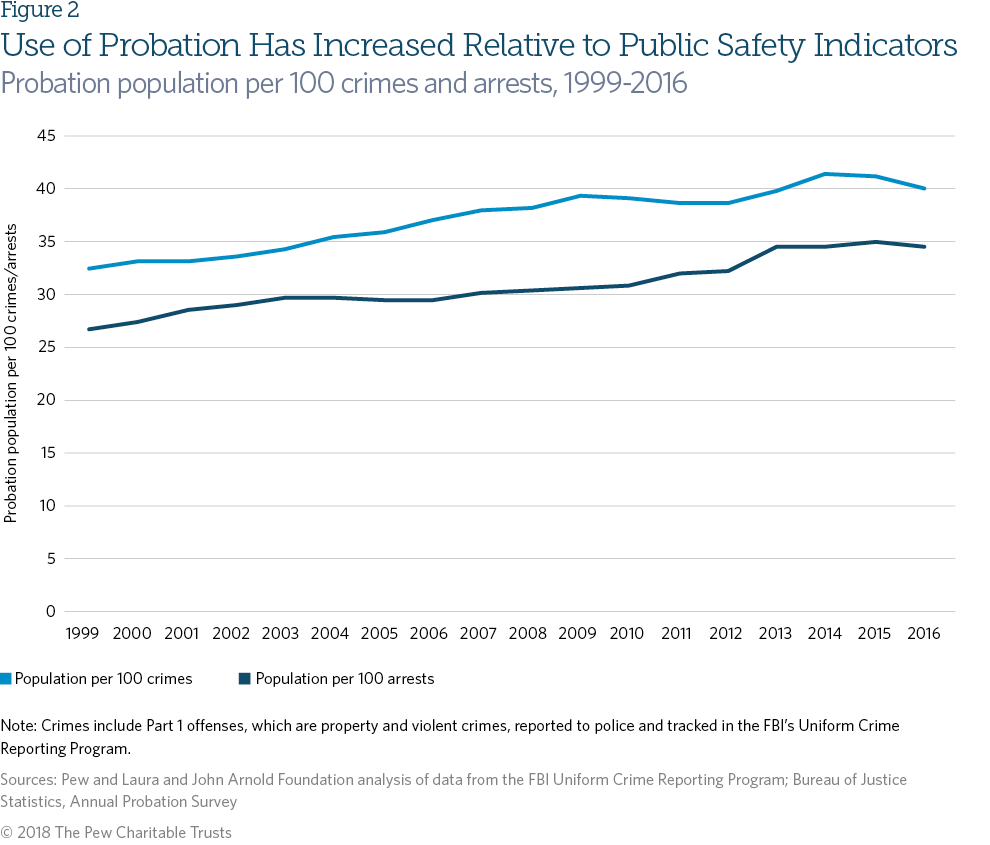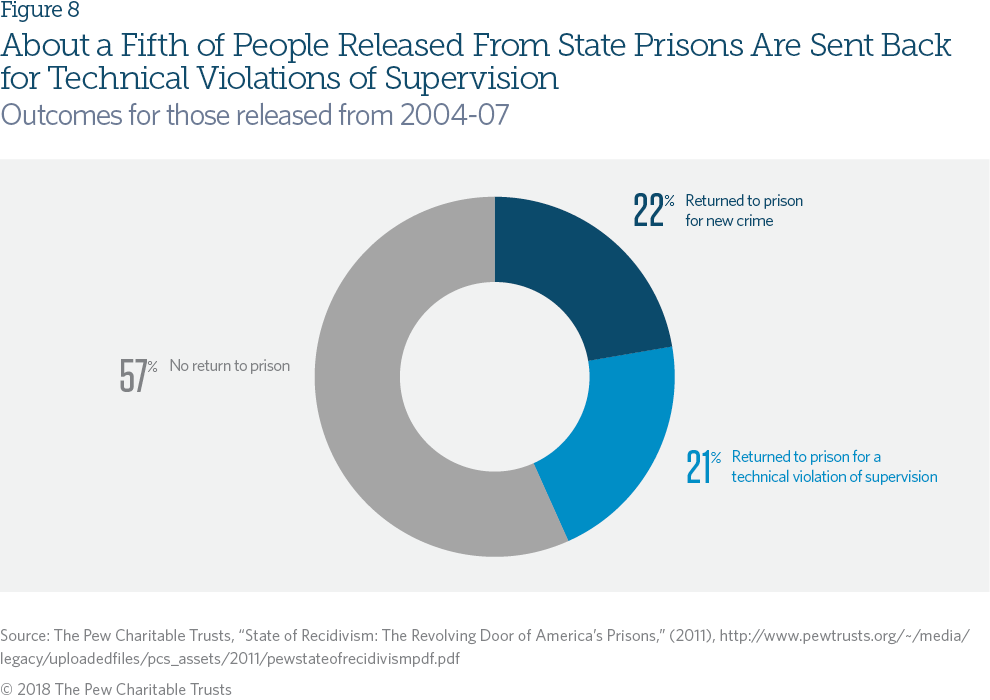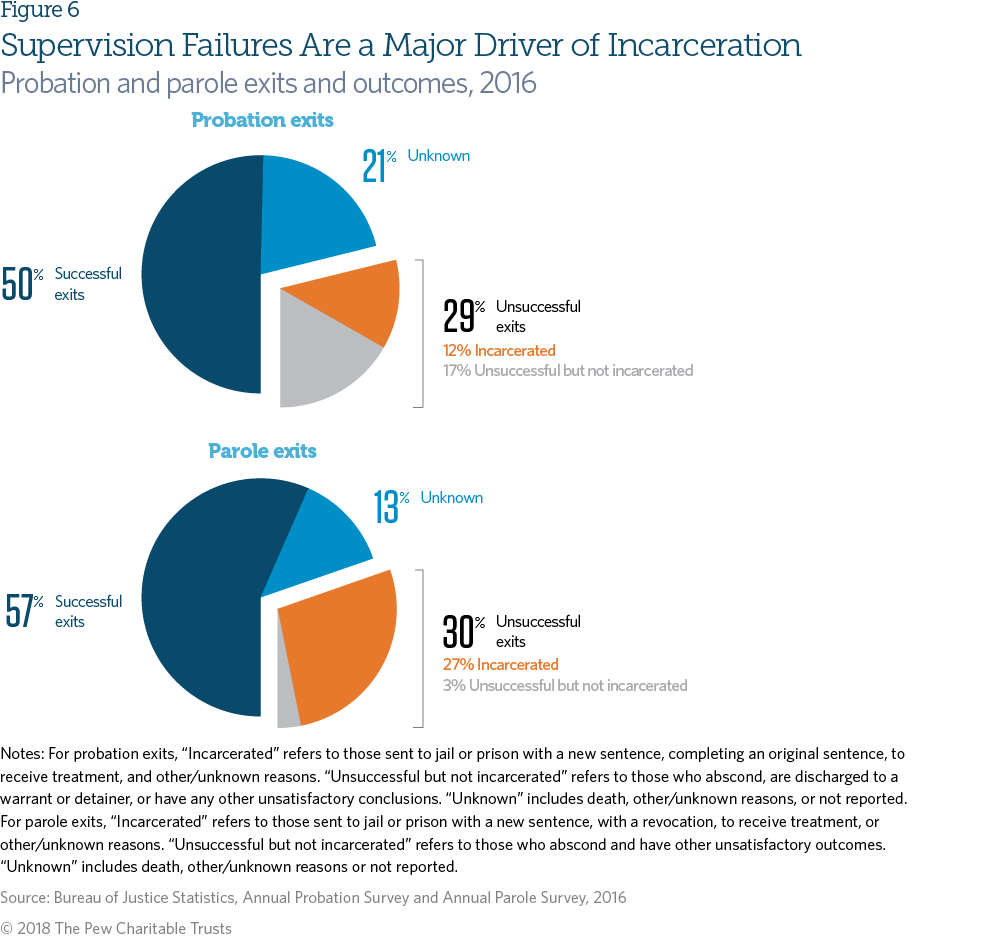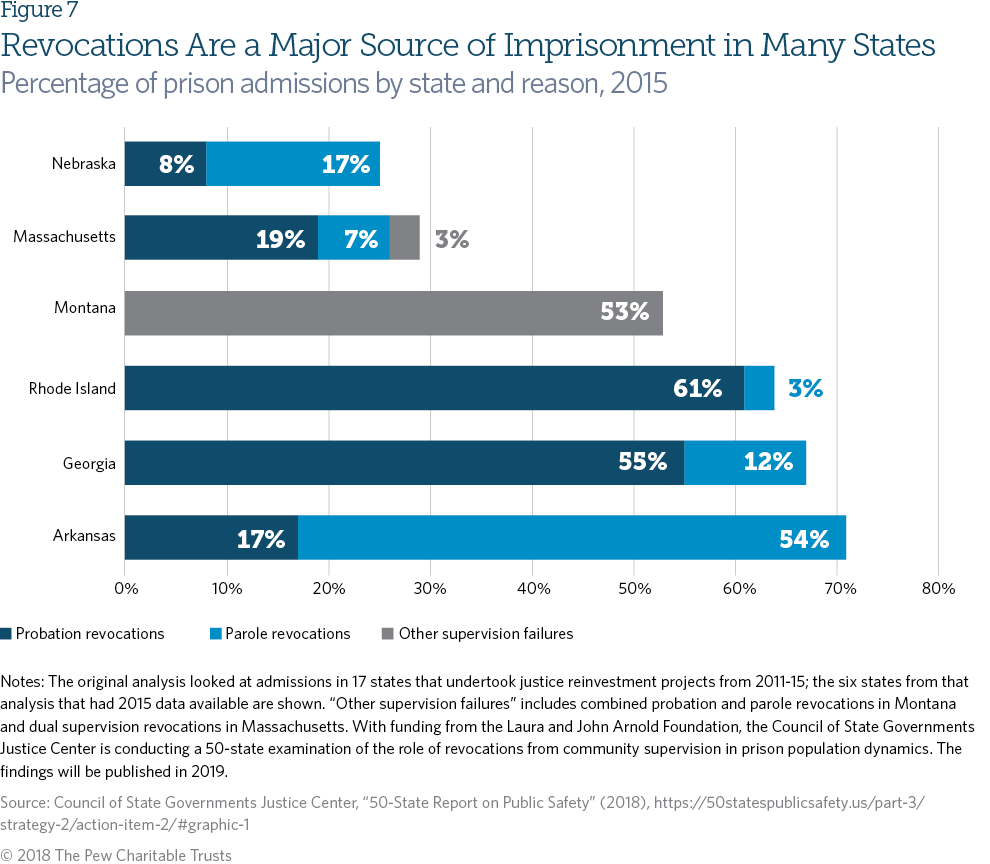The Offenders Most Likely to Fail on Parole Are
Rests are more likely to have their parole revoked. Glaze and Bonczar 2008.

Probation And Parole Systems Marked By High Stakes Missed Opportunities Popai
Major events like parenthood a job or treatment seemed to have little impact unless the offender was ready for change.

. Re-offending on parole. Conversely employed offenders and offenders not affiliated with gangs are less likely to receive revocations. Although the presence and use of parole post-prison differs across states Jacobson 2005 women have become an increasingly large part of the parole population since 1985 Chesney-Lind and Pasko 2004.
Which of the following reasons for parole failure is most common among offenders in the United States. Young male Black and Hispanic offenders are also more likely to have their parole revoked. Which type of offender is most likely to fail on electronic monitoring.
Of that the State spends 15 billion on male and female offenders after they have completed their prison terms most of it re-incarcerating parole violators. Drug positives lack of employment not. Observations Offenders will not change until they are personally ready for change.
We know that most people fail on parole soon after they are released from prison. On average about 25 of all parole exists in the US are due to reincarceration although this rate varies substantially between states. A strong influence on probation and parole fail-Carmichael.
A telephone call Following the pretrial release decision and with the assistance of counsel the defendant enters a plea to the charge and may qualify for an ____________ program. Because being on probation or parole was viewed as a privilege conferred by the state most states believed that they were under no. About 10 percent of all offenders are arrested during their first month back in the community asked Apr 29 2017 in Criminal Justice by Carolina.
Substance abusers The _____ approach integrates community protection the accountability of the juvenile offender and individualized attention to the offender. The present study is the first to evaluate the effectiveness of parole supervision in. Nearly one - fourth of all parolees will fail in the first six months.
Offenders may be placed on parole as a result of a discretionary release or by a mandatory release based on earned good time credit Snarr Wolford 1996. We have seen similar research results as supervised offenders on parole and probation are returned to incarceration for technical violations on the premise that the more you watch them-the more you violate them There are few people on parole and probation supervision who meet all the requirements of supervision. Adults on parole in the United States are most likely to be under.
Asked Aug 19 2019 in Criminal Justice by Dr-Doom. For most of the history of probation and parole in the United States offenders were viewed as having received a gift from the state when they were not sent to prison. The Successful Completion of Probation and Parole Among Female Offenders.
Parole was not only a failed deterrent for many but it was a direct impediment to successful reentry. Older offenders are much less likely than younger offenders to fail on parole. Foreword Although more than 12000 offenders are on parole at any given time little is known about the effectiveness of parole supervision in reducing reoffendingThe few studies that have been conducted involve samples of parolees released from prison in other countries.
Probation Parole and the Law. When people fail on parole their parole is revoked and. Parole is based in part on the notion that most offenders can benefit from a period of transition into the community prior to sentence completion.
However the largest single predictor of revocation is whether or not a parolee absconds. This means about 10 of those in some sort of correctional supervision are on parole. Previous studies had suggested that more than 60 per cent of offenders released on parole re-offended within two years of release.
About 10 percent of all offenders are arrested during their first month back in the community asked Apr 29 2017 in Criminal Justice by Carolina. We know that most people fail on parole soon after they are released from prison. Only offenders convicted of violent sexual low-level crimes who have been determined to be a serious risk to the public are eligible for nonrevocable parole NRP.
Hence more and more women leave prison and experience the reentry process while under the supervision of parole. Nearly half of women parolees violate conditions of their parole and end up back in prison and 90 percent of those violations are for non-violent behavior. The most common response of pretrial programs to defendants who failed to appear for their court date was.
While the total number of offenders on parole or post-release supervision 1 has increased in the last few year the rate of failure on parole has remained steady. Compared to 18- to 29-year-olds offenders between 30 and 49 are 26 less likely to fail because of a new offense and offenders 50 and older are 59 less likely to come back on a new offense and 40 less likely to fail because of a technical violation. In a separate study of nearly 10000 offenders released to parole between 2010 and 2011 the Bureau found the rate of re-offending on parole is lower than previously thought.
Indicates that older offenders are more likely. So parole is one of the most important types of release used to return offenders to society.

Probation And Parole Systems Marked By High Stakes Missed Opportunities Popai

Probation And Parole Systems Marked By High Stakes Missed Opportunities Popai

Probation And Parole Systems Marked By High Stakes Missed Opportunities Popai
No comments for "The Offenders Most Likely to Fail on Parole Are"
Post a Comment